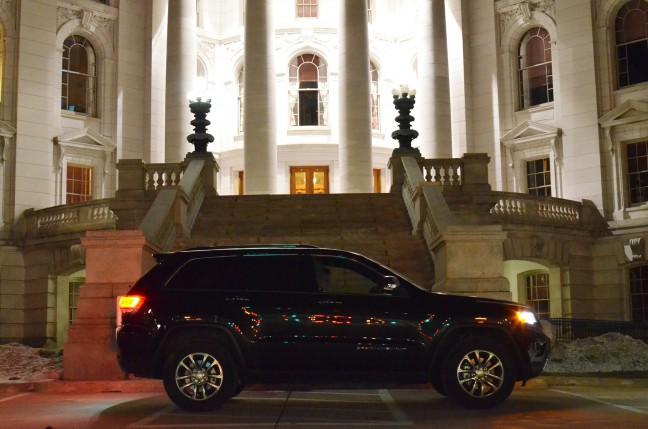As an avid user of rideshare companies such as Uber and Lyft, I was disappointed to learn the City of Madison considered imposing harsh regulations on those companies.
Since most political issues nowadays operate on a clear partisan divide, it is both refreshing and enlightening to learn there is a new bill in the state Legislature with bipartisan support that deals with ridesharing companies.
State Rep. Tyler August, R-Lake Geneva, is one of the authors of a bill that would create statewide standards for rideshare companies, also known as Transportation Network Companies. The bill requires the companies to meet certain licensure and insurance requirements, and drivers would have to submit a criminal background check to the companies. It also prohibits cities from adopting regulations on the companies. Ultimately, it would enable Uber and Lyft to operate across the state with minimal restrictions.
As a happy customer of such companies, of course I am delighted to see that our elected officials are working toward allowing a level playing field for these companies to operate. I am even more excited to see there are lawmakers on both sides of the aisle dedicated toward getting this bill passed.
August is the bill’s chief author, but Rep. Cory Mason, D-Racine, and state Sens. Paul Farrow, R-Pewaukee, and Julie Lassa, D-Stevens Point, are co-sponsors of the bill. The bill passed on a 79-19 vote in the Assembly Tuesday.
With bipartisan support in our state’s Legislature, it is hard to understand why ridesharing companies have faced opposition at the local level. Many of those in favor of restricting rideshare companies argue they need to operate and follow the same rules and regulations as taxi companies.
Thankfully, ordinances Mayor Paul Soglin and former mayoral candidate Ald. Scott Resnick, District 8, introduced at the local level, which harshly restricted TNCs in Madison, were not passed.
I am not against taxi companies by any means, but if someone thinks TNCs and taxis are the same thing, then that person has a fundamental misunderstanding of what TNCs are.
Yes, it is true that taxi companies and TNCs offer similar services, but they conduct business in totally different ways. The bill specifies TNCs are not the same as taxis or other for-hire vehicle services, but instead are businesses that connect drivers and passengers via a digital network for a fee. In many ways, TNCs are arguably safer and more efficient than traditional taxi services.
“Ridesharing’s cash-free transactions and self-identified customers substantially mitigate one of the worst risks associated with traditional taxis: the risk of violent crime,” according to a policy analysis earlier this year from Matthew Feeney of the Cato Institute.
Additionally, Feeney found that ridesharing companies like Uber and Lyft screen their drivers appropriately and, in some cases, more strictly than traditional cab companies. Both companies also offer superior auto insurance coverage in certain major U.S. cities.
Feeney concluded that, “As far as the future of ridesharing is concerned, the biggest risks to consumer welfare come not from safety issues but from politics.”
Fortunately, in Wisconsin, if this bill is passed, politics won’t be able to get in the way of such companies operating in our state.
However, in other states throughout the country, TNCs don’t have the type of bipartisan support that we are currently seeing here in Wisconsin. As a young Republican, I am happy to see that, in general, the GOP is embracing this new innovation since the party sometimes gets the reputation of being closed to new ideas.
This is not the case with innovations like Uber and Lyft, however. These companies are a shining example of the conservative ideals of capitalism and the free market.
Republicans have struggled to earn votes among the younger generation in the past two presidential elections. By unifying across the country on this issue and embracing rideshare companies, Republicans can potentially win over more of the youth vote for the 2016 election.
For now, though, as a University of Wisconsin student who frequently uses both Uber and Lyft to get from my house to State Street on the weekends, I am satisfied for the short-term victory for ridesharing companies in Wisconsin due to August and his co-sponsors’ work. I look forward to seeing the bill signed into law.
Courtney Mullen (cemullen2@wisc.edu) is a senior majoring in journalism and is the chair of the College Republicans.
Correction: A previous version of this column misspelled Matthew Feeney’s name.


